By Rick VanSickle
He will be a spry 83 years old in May, has written passionately about wine for over 40 years and is Canada’s most prolific wine author, so it’s about time Tony Aspler made his life just a little less busy.
Last week, George Brown College announced the acquisition of the Ontario Wine Awards, the province’s most prestigious and longest running wine competition and awards program that was founded and run by Aspler since in 1985.
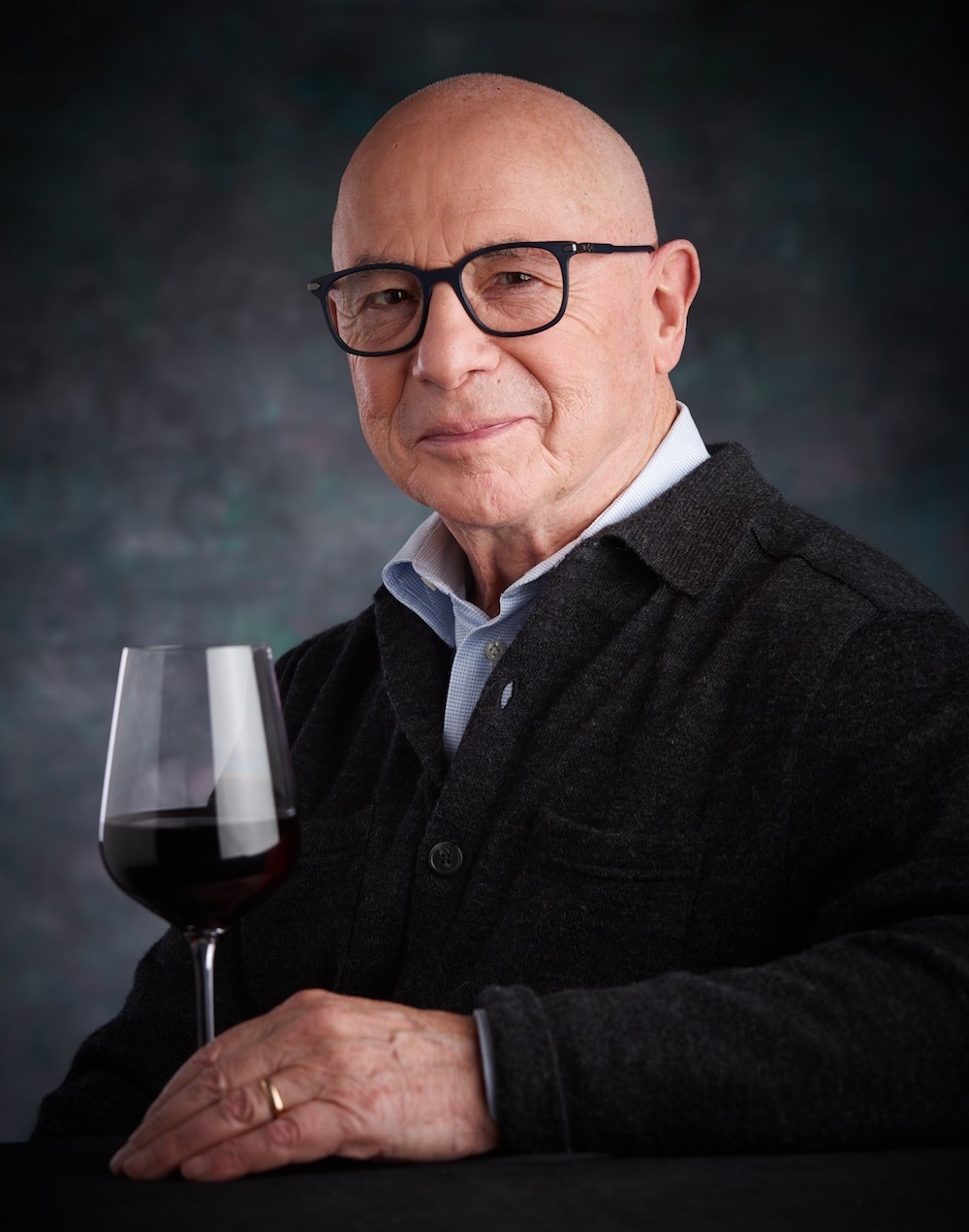
“The acquisition of the Ontario Wine Awards by George Brown College will ally Canada’s future sommeliers, chefs and hospitality and tourism executives with the Ontario wine industry,” said Aspler. “Familiarizing George Brown students and industry partners with the fine VQA wines of Niagara, Prince Edward County and SW Ontario will create an on-going cohort of ambassadors for the industry.”
The Ontario Wine Awards recognize Ontario Vintners Quality Alliance wines for their quality, distinction, and brilliance. The various competitions and tastings delivered under OWA draw more than 80 industry leading wineries, 500 wine entrants and over 500 participants across the events.
George Brown’s Centre for Hospitality and Culinary Arts has been a participant in the execution of the OWA judging and events since 2016. The acquisition will allow the college to incorporate the program into its academic and enterprise delivery, further positioning George Brown as a beverage alcohol education leader.
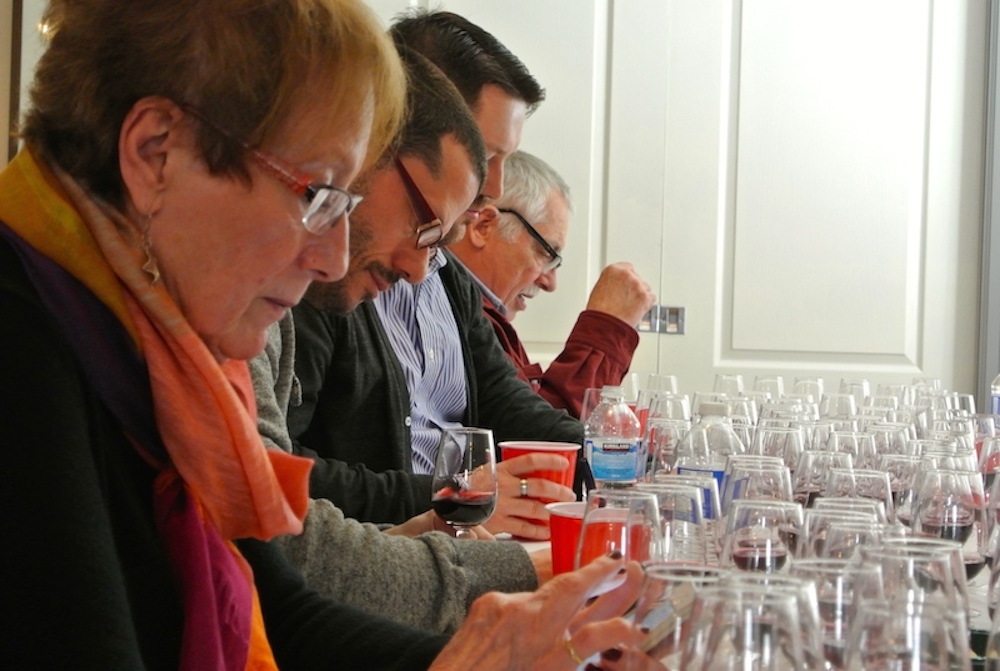
The awards recognize VQA wines in 27 different categories and acknowledge winners with bronze, silver and gold medal levels. There are also distinctive awards given out honouring the Winemaker of the Year, White Wine of the Year, Red Wine of the Year, Sparkling Wine of the Year, Wine Journalism Award, Lifetime Achievement Award and Best Label Design.
“As a long-time leader in hospitality education, George Brown College is excited to build on its existing relationship with the Ontario Wine Awards. We are united by our sense of responsibility to and support of the industry, as we strive to deliver exceptional graduates who will become tomorrow’s industry leaders,” said Dr. Gervan Fearon, president of George Brown College. “This collaboration will create new learning development opportunities for students within our School of Hospitality and Tourism Management and talent capacity for Ontario’s wine industry.”
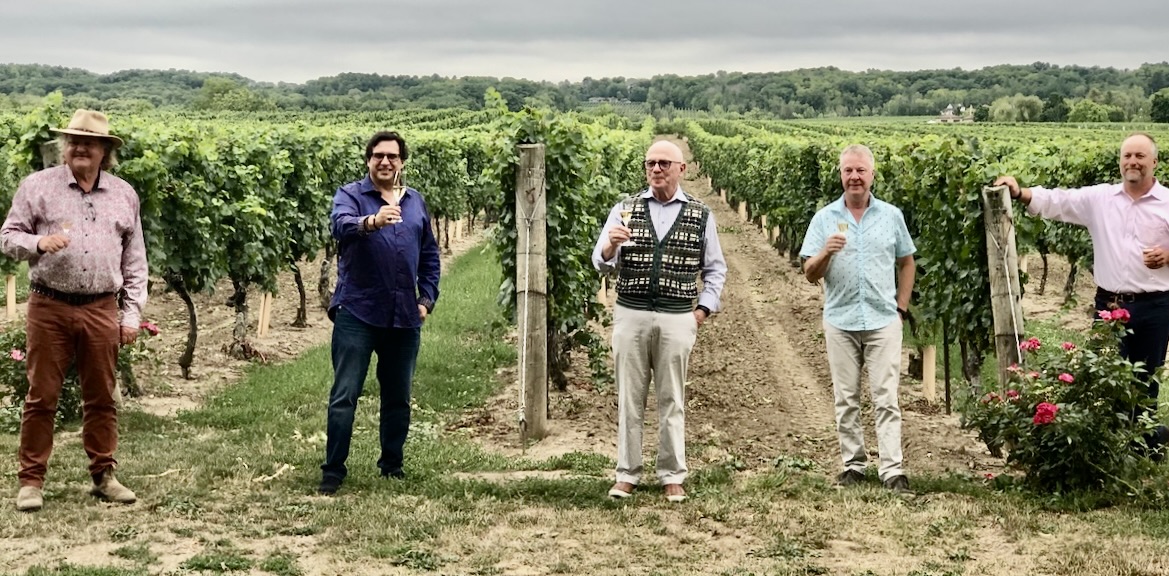
Aspler has been writing about wine for over 40 years. He was the wine columnist for The Toronto Star for 21 years and has authored 27 books, most of which are focused on wine and food, including The Wine Atlas of Canada, Vintage Canada, The Wine Lover’s Companion, The Wine Lover Cooks, Travels with My Corkscrew, Tony Aspler’s Cellar Book, The Five Minute Wine Book, and Five Minutes More. In December 2007, he was awarded the Order of Canada for his contributions to the Canadian wine industry.
Aspler is also an international wine consultant and judge with extensive experience in Europe and the new world and is recognized as one of the leading authorities on Canadian wines.
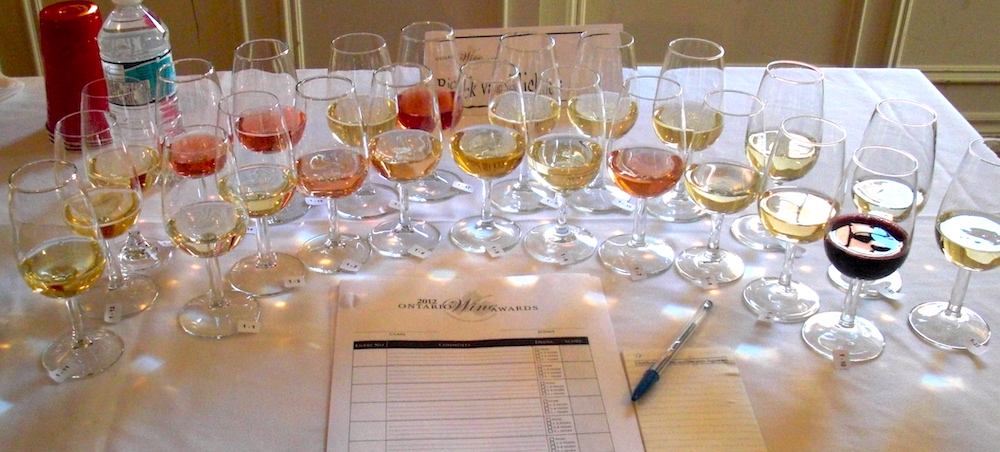
Aspler explains in this Q&A with Wines in Niagara that “after 28 years, my wife Deborah and I felt it was time to move on. For us, it’s been a privilege to work with Ontario’s winemakers and we will miss that aspect.”
He fully intends to continue tasting and writing about wine. “I don’t think of myself as a wine critic, rather as an evangelist for wine – a beverage that means so much to me,” he said. “And then there’s my wine fiction. During the pandemic I published, Nightmare in Napa, the fourth in the Ezra Brant wine murder mystery series that includes Blood Is Thicker Than Beaujolais, The Beast of Barbaresco and Death on the Douro.”
The Q&A with Tony Aspler
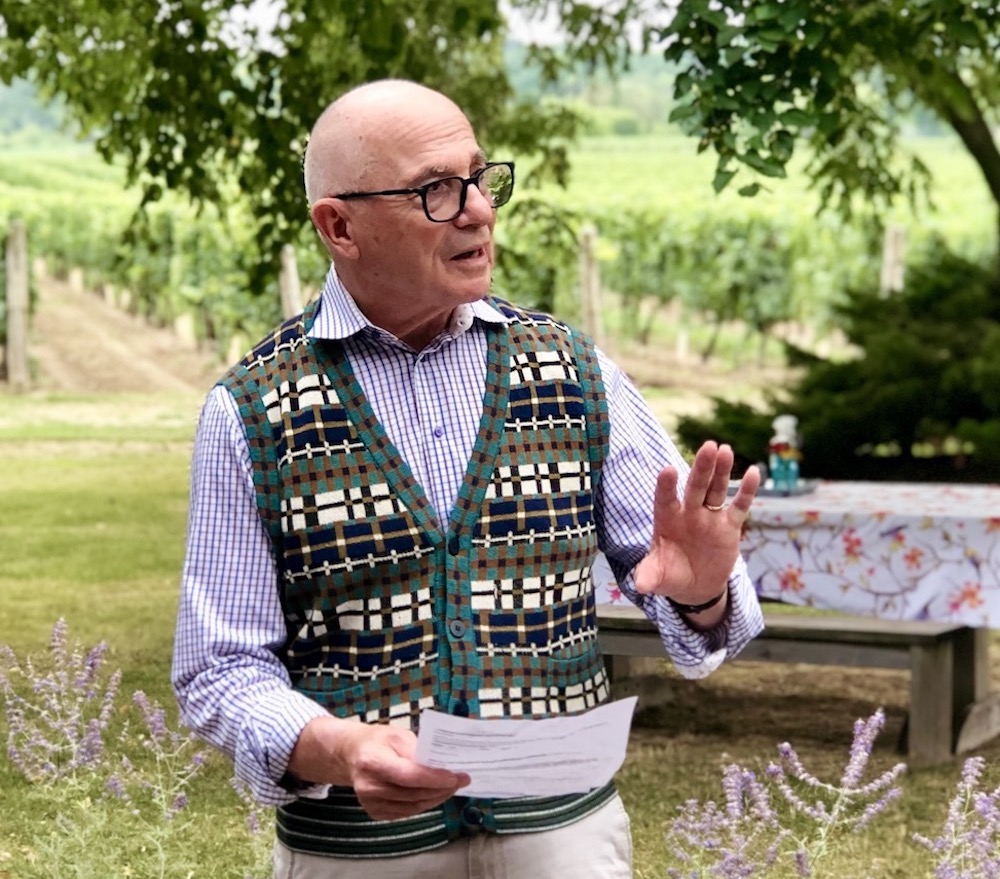
Wines In Niagara: As the architect of Canada’s longest running, independently owned, and most respected awards, it must be bittersweet to be stepping back from the Ontario Wine Awards. What prompted your decision to turn the awards over to George Brown College?
Tony Aspler: After 28 years, my wife Deborah and I felt it was time to move on. For us, it’s been a privilege to work with Ontario’s winemakers and we will miss that aspect, although I’ll be consulting to George Brown for a while until the students feel confident in running the awards. The acquisition of the Ontario Wine Awards by George Brown College will ally Canada’s future sommeliers, chefs and hospitality and tourism executives with the Ontario wine industry. Familiarizing George Brown students and industry partners with the fine VQA wines of Niagara, Prince Edward County and SW Ontario will create an on-going cohort of ambassadors for the industry.
WIN: The first awards were held in 1995, just as the quality of Ontario wines was beginning to get noticed. Can you take us back to that first event and what your thought process was to even think about an awards program for such a young region at the time?
Aspler: I had had a long association with Ontario wines going back to 1982 when I wrote Vintage Canada. That year was the heyday of Baby Duck sales. I had seen such enormous strides made by our local industry since those days and I wanted to celebrate the winemakers and their achievements. I believed consumers were ready to look at their local wines in competition against each other.
WIN: The Ontario Wine Awards have always been supported by most of the wineries in Ontario. What made OWA so unique and widely respected by both industry and consumers?
Aspler: I’m confident it’s because of the quality of our judges and their knowledge of the industry and its history. Also because of the rigour of the judging process and the professionalism of the behind-the-scenes team led by Sadie Darby. Her team is responsible for putting the wines in flights, placing the flights totalling over 500 wines in front of the judges — and dealing with faulty wines.
WIN: As someone who judged the awards in the past, I can say that the panel was always an eclectic team of wine experts that continued to evolve and change over the years. Was this by design, to always get a fresh take on Ontario wines?
Aspler: I think it was important to involve tasters from different parts of the wine world – LCBO buyers, sommeliers, wine writers, bloggers, IWEG students – and to have fresh palates tasting alongside seasoned veterans.
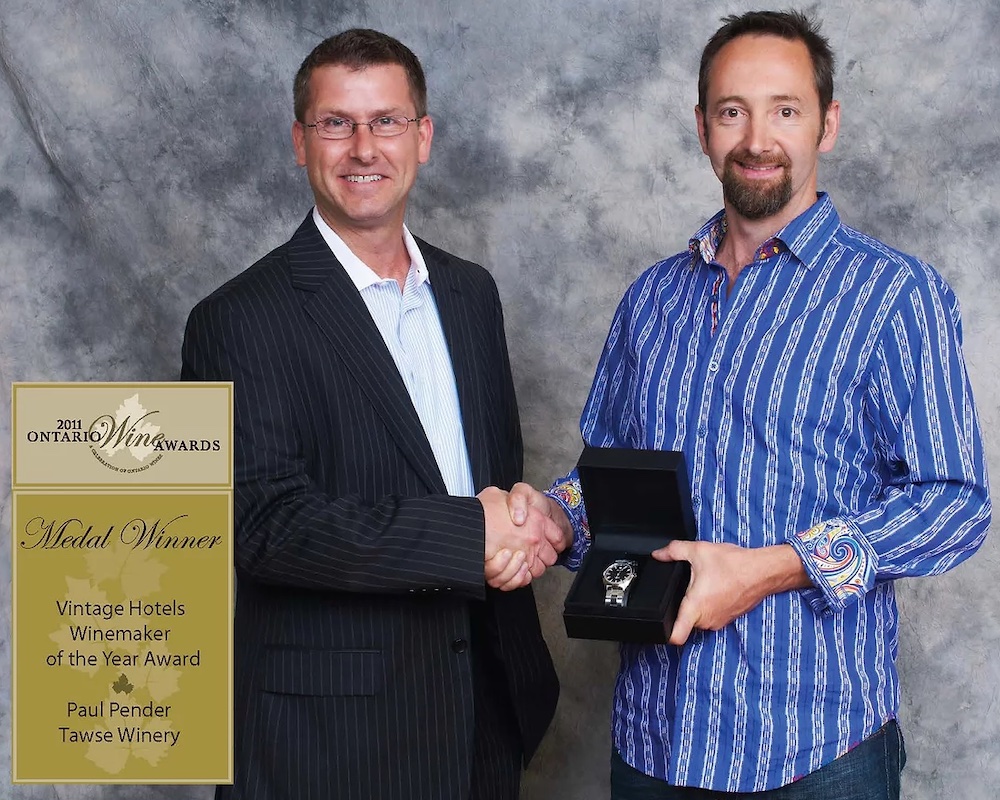
WIN: Along with the various category winners over the many styles of wine made in Ontario, you introduced awards for Winemaker of the Year, the Wine Journalism Award, Lifetime achievement Award and Best Label Design Award. This year you added a special award named after the late Tawse winemaker Paul Pender. Can you talk about that a bit and why it was important to create that award?
Aspler: Paul Pender was a winemaker’s winemaker. He was always ready to share his knowledge and passion for winemaking; always ready to encourage his peers to do better and to mentor newly minted, up-coming talent. His tragic passing was a great loss to the Canadian wine industry. The award is called The Paul Pender Memorial “Rising Star” Award. It won’t necessarily be awarded every year, only at the discretion of the selection committee.
WIN: Does any winery stand out for you as a perennial winner over the three decades and more of the competition? And what is the winning strategy, in your mind?
Aspler: There are two wineries that stand out for me because of their repeat performances: Exultet Estates (Prince Edward County), which won the gold medal for The Blessed Chardonnay three years in a row, and the Gamay sweeps by Malivoire Wine Company. As to a winning strategy, I can only say to wineries, enter your best wines. They will speak for you.
WIN: Why are wine competitions important for both wineries and consumers?
Aspler: Competitions give wineries the opportunity to see how their wines stack up against those of their peers; and the results give consumers the confidence to commit their wine budget to choosing wines of proven quality that bear the gold, silver or bronze decals on the bottles at the point of purchase.

WIN: There have been some difficult issues to overcome along the way; revoking Norm Hardie’s Winemaker of the Year award in 2018 comes to mind. But I assume the hardest hurdle to overcome was the COVID era. How difficult was it to keep OWA alive and healthy during the past couple of years?
Aspler: For two years we were unable to have our panels judging flights of wines in the same room. In 2020 we tried to canvas the opinions of judges we had used over the years, asking them to recommend their favourite wines of the year in two categories: Red Wine of the Year Award (Rosehall Run 2018 JCR Pinot Noir Rosehall Vineyard) and White Wine of the Year Award (Charles Baker 2017 Riesling, Picone Vineyard). But this was not entirely satisfactory, so we bit the bullet and decided only to offer the Winemaker of the Year Award in 2020 (Philip Dowell, Angels Gate/Kew Vineyards) and 2021(Dave Sheppard, Flat Rock Cellars). That way we could at least keep some kind of continuity of the OWA award presentations.
WIN: Any regrets along the way, Tony? Would you do anything differently if you could start the Ontario Wine Awards all over again?
Aspler: I’m sorry we didn’t institute an Upcoming Winemaker Award before this year. I would also have also liked to have a province-wide award for the restaurants with the best VQA list. Cuvee did this for a while but it’s a good way to showcase the local wines to the consuming public.
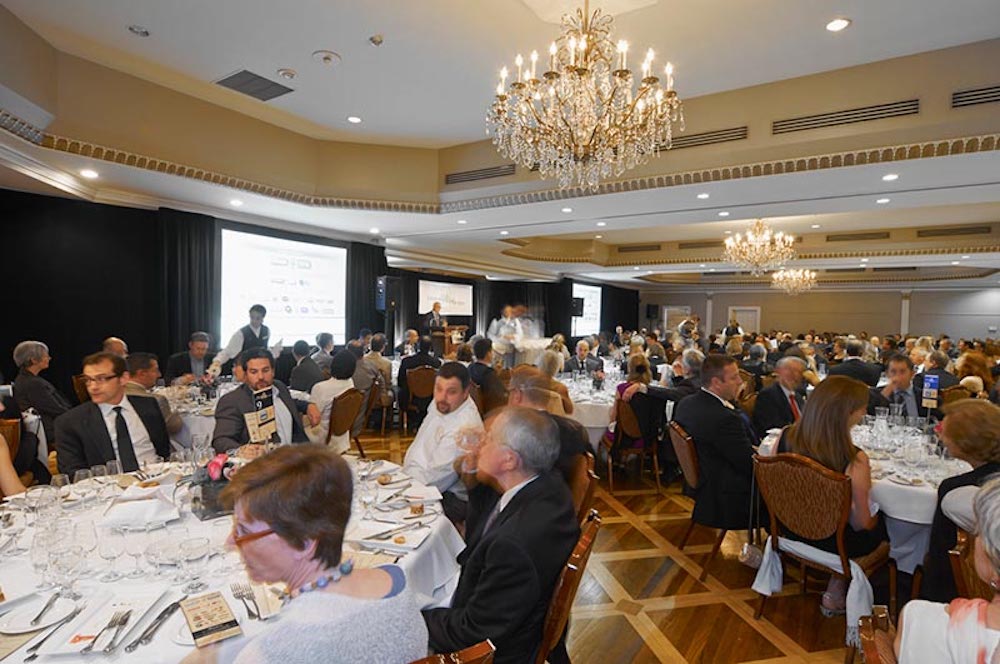
WIN: You have done so much for the Canadian wine industry and have been recognized with many awards over the years, not the least of which is being named to the Order of Canada in 2007. My last question is this: What’s next in the amazing journey of Tony Aspler?
Aspler: I turn 83 next month, so I’m slowly divesting myself of deadlines. I intend to continue tasting and writing about wine. I don’t think of myself as a wine critic, rather was an evangelist for wine – a beverage that means so much to me. And then there’s my wine fiction. During the pandemic I published, Nightmare in Napa, the fourth in the Ezra Brant wine murder mystery series that includes Blood Is Thicker Than Beaujolais, The Beast of Barbaresco and Death on the Douro. I’m making notes for One Foot In The Graves.
About Tony Aspler
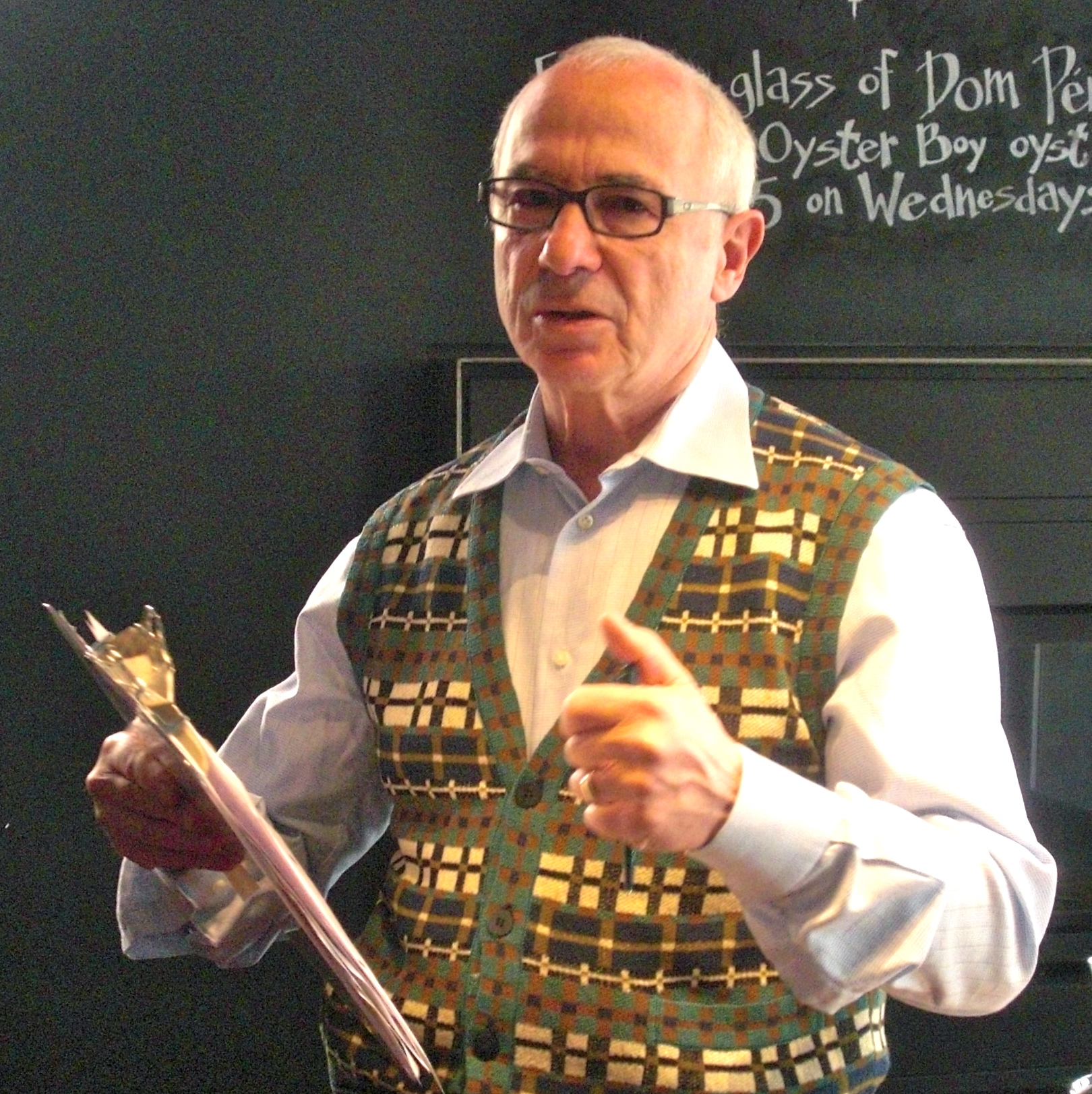
• Author/co-author of 11 novels, including four with Gordon Pape: Chain Reaction, The Scorpion Sanction, The Music Wars and Taste of Evil. The Viking Press, New York published the first two. His latest series is a collection of wine murder mysteries featuring the itinerant wine writer/detective Ezra Brant: Blood Is Thicker than Beaujolais, The Beast of Barbaresco and Death on the Douro (published by Warwick Publishing) and Nightmare in Napa Valley (published by Allen Maccauley).
• Wrote two half-hour episodes for the CBC-TV historical series The Campbells and co-wrote with Gordon Pape an hour-long radio adaptation of their novel Chain Reaction.
• In December 2007, was awarded the Order of Canada.
• In 2012 he was the first Canadian to be inducted into the New York Media Wine Writers Hall of Fame. In that year he was awarded the Queen’s Jubilee Medal.
• In 2017 Aspler was awarded Spain’s Officers Cross of the Order of Civil Merit.
• In 2021, he received the Lieutenant Governor of Ontario’s Challenge Coin.
• In February 2001, Aspler co-founded a charitable foundation with Arlene Willis, Grapes for Humanity, which raises money through the wine community for the victims of landmines and children with disabilities.
• He is the panel chair for Canadian wines at the annual Decanter World Wine Awards. He is an honorary governor of Cuvée and a director of the Independent Wine & Spirit Trust. He is also a director of The Canadian Wine Library. At the Niagara Grape & Wine Festival 2000, Aspler was presented with the Royal Bank Business Citizen of the Year Award.
• Aspler writes for several international wine magazines, including Wine Spectator, Decanter, Quench, Post City Magazines, Lexpert, On the Go and Fine Wine & Liquor (China).
• He was the Canadian contributor to Jancis Robinson’s Oxford Companion to Wine, Tom Stevenson’s annual Wine Report and to Oz Clarke’s annual Pocket Wine Guide.
Tony Aspler’s website can found here.









Comment here